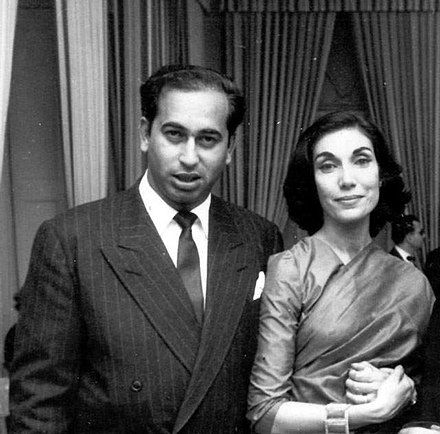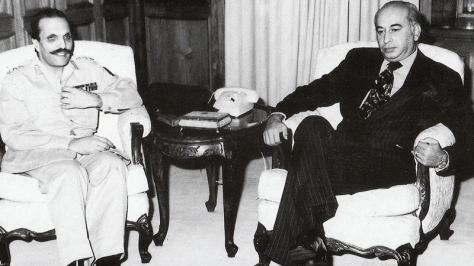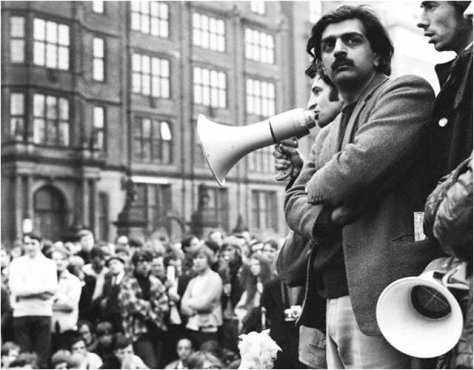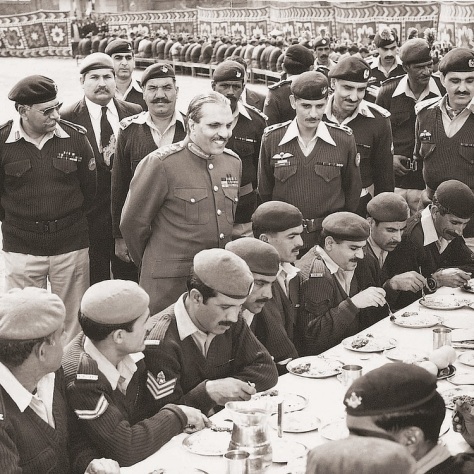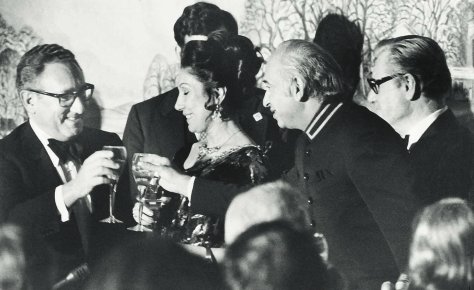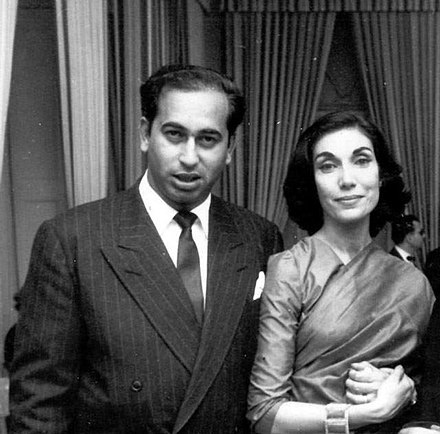WHY I CHOSE TO READ THIS BOOK?
A few months ago, I happened to read Tariq Ali’s “The Leopard and the Fox” which was a script for the show BBC commissioned him in 1985 to write about the final days of Pakistan’s former Prime Minister and the founder of Pakistan People Party (PPP), Zulfikar Ali Bhutto. The project was shelved for being anti-Zia-ul-Haq.
Bhutto’s leadership in Pakistan has always been a talking point whenever the country’s political history has been reflected. During the entire political fiasco the country has suffered, it is worth observing that Zulfikar’s political career was confronted with three of the four military phases. Under Ayub Khan, Bhutto was the Foreign Minister. Yahya Khan handed over his presidency and his government to Bhutto after the fall of East Pakistan. Zia-ul-Haq was Bhutto’s second Chief of Army Staff who later became the reason for his death.
Zulfikar’s political legacy and fresh memories of reading the previous book on Bhutto-Zia prompted me to read Qayyum Nizami’s political analysis of the PPP’s prime era and the memoir of Bhutto in the shape of almost a 500-page book, ‘Jo Dekha Jo Suna’ (What I Saw, What I Heard).

WRITING STYLE AND DETAILING
Although, a book with such lengthy detailing does not really buy me as a reader as I feel that the author has heavily sugar-coated Bhutto’s heroics and overpraised him. I adore Bhutto’s style of addressing and his leadership, the man had the courage to raise his voice against the military dictatorship and address eye-to-eye with the United States. But the flaw is in the style of writing that makes ‘Jo Dekha Jo Suna’ look like some propaganda project.
On page.192, there is a detailed chronological timeline of the Bhutto government’s activities. In these pages, I noticed that a lot of times Bhutto government got loans from Saudi Arabia, the United States, Russia, etc. Why the author doesn’t explain the reason for asking for loans? Pakistan in 2022 still continues the tradition of receiving loans from the IMF and other countries but this history book should have highlighted, why Pakistan was receiving loans fifty years ago.
Bhutto was, without a doubt, a great leader but the author being his disciple has glorified Bhutto and made me think if I was reading a biography of God but not Bhutto. Almost every turn of a page has dramatic praises for him. There is literally a line on page.176 where the author compares Bhutto’s martyrdom with Hussain’s by writing that “Pakistan and third world countries regret Bhutto’s martyrdom just like Islamic world regrets with Hussain’s.”
And then there are various incidents or statements that make you think if the authenticity compromises. The author writes on page.119 about one night during the times of Pakistan military and government officials’ humiliating surrender before the Indian Army, Bhutto’s daughter Benazir enters her father’s room and notices that he is lying on the floor instead of in bed. When she asks the reason then Bhutto replies, “How can I sleep on the bed when 90,000 soldiers sleep on the floor of Indian camps?” Maybe this reads very inspiring to the other readers but I feel as if this is a reel incident but not real.
On page.38, the author states that former Indian Prime Minister, Lal Bahadur Shastri, died of a heart attack. He didn’t bother to clarify that Shastri’s death is still a mystery despite the reason for his passing being announced to be a heart attack. But the author finds it more important to inform the readers that the-then Foreign Secretary Aziz Ahmed called Shastri a bastard.
INTERESTING HIGHLIGHTS
‘Jo Dekha Jo Suna’ is not really full of a disciple glossing his party and the leader in its entirety, there are many pages that are either of some critical significance or heartwarming. I really liked reading about the relationship between Bhutto and his wife, Nusrat. In the earliest pages, there is a chapter where Nusrat Bhutto gives details about how she and Zulfikar came to know each other and tied the knot. In the middle of the book, a chapter reflects on the entire meeting of Nusrat and Benazir with Bhutto in prison a day before he was hanged, and that was pretty heart-boiling to read, picturizing and imagining how things would have gone between these Bhuttos.
‘Jo Dekha Jo Suna’ also offers to read Bhutto’s memorable speeches that are stretched to around fifty pages. The book has documented a lot of letters that Bhutto father and daughter wrote to the author and vice versa. There, also, are letters by famous British philosopher Bertrand Russell to different global leaders of that time praising Bhutto and sharing his point of view about his political vision. There also are over a hundred rare pictures of Bhutto, Benazir, and Qayyum Nizami during various political events.
One of the last chapters of the book covers politicians, journalists, and people from other fields of work briefing their own ‘What they saw, What they heard’ to the readers. Some events and incidents are interesting.

after court case hearing, at High Court in Lahore on Monday, April 08, 2019. The Lahore High
Court (LHC) granted Punjab Assembly Opposition Leader, Hamza Shahbaz pre-arrest bail till
April 17 and restrained the National Accountability Bureau (NAB) from arresting him in cases
pertaining to ownership of assets beyond means. (Babar Shah/PPI Images).
CLOSING REMARKS
Qayyum Nizami is a veteran politician and columnist who played an important role in Bhutto’s party. He had close political relations with both Bhutto and Benazir. ‘Jo Dekha Jo Suna’ is his extensive insider about the struggling times of his leader and the party.
The motive for reading the book is that the reader acquires knowledge. Bibliophiles cannot remember every word or page of the book they read but naturally, our brain has the obvious capacity to store at least one to twenty percent of the information that is collected from the book. By reading ‘Jo Dekha Jo Suna’, it doesn’t matter whether I liked reading this book or not, I get some clues and rough ideas about the existence of the party, the Bhutto administration, and the political conflicts of his time, and that is what is valuable for me.



